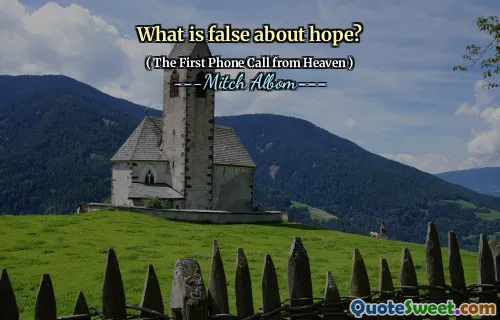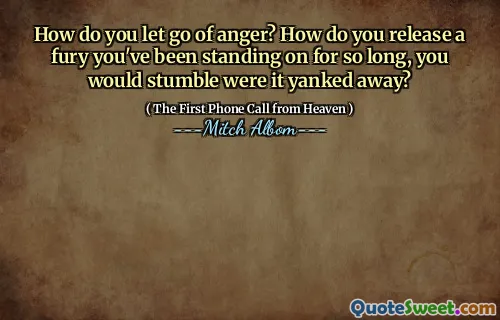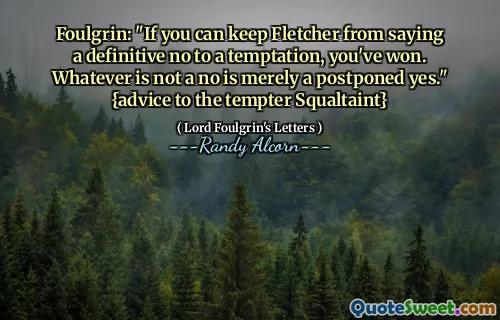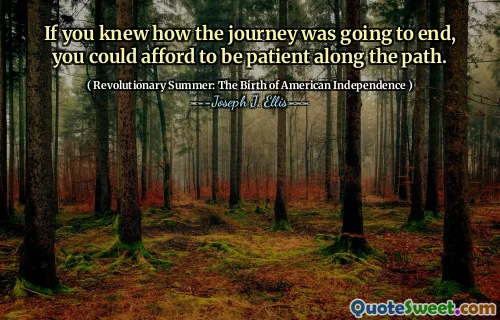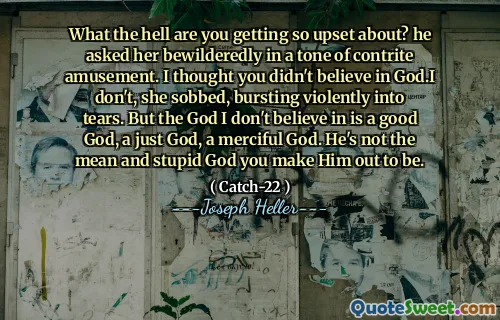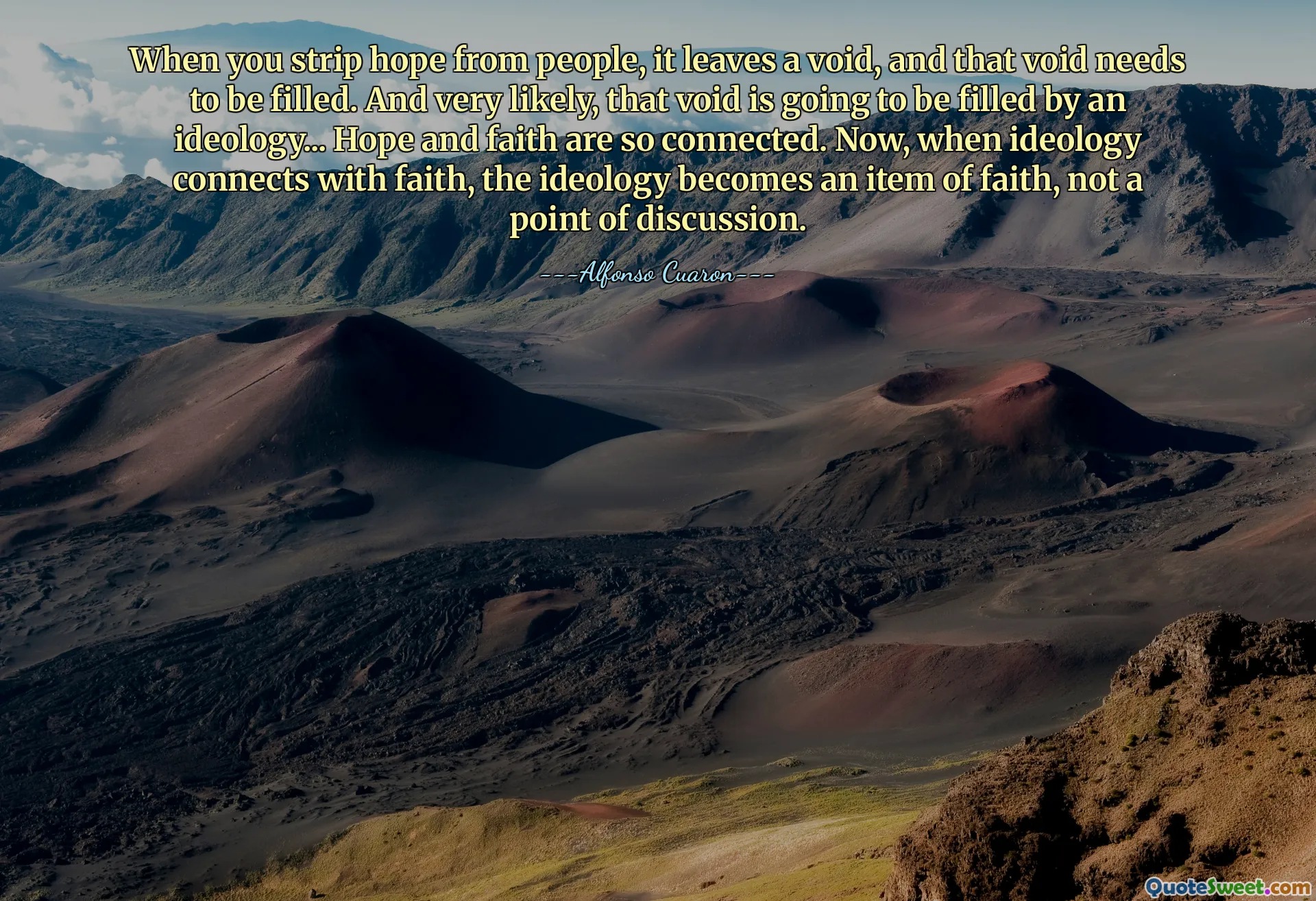
When you strip hope from people, it leaves a void, and that void needs to be filled. And very likely, that void is going to be filled by an ideology... Hope and faith are so connected. Now, when ideology connects with faith, the ideology becomes an item of faith, not a point of discussion.
This quote by Alfonso Cuaron beautifully articulates a profound observation about the human condition, specifically the interplay between hope, faith, and ideology. At its core, the statement suggests that hope is a vital element in people’s lives; without it, they experience a void — an emptiness that compels them to seek something to fill it. This intrinsic need leads to the often inevitable adoption of an ideology. The insight here is powerful because it sheds light on why ideologies can become so deeply entrenched and resistant to questioning once they intersect with faith.
Hope acts as a lifeline, offering possibilities and a brighter future. When hope is stripped away, it creates a form of psychological and emotional deprivation. To fill that gap, individuals may not choose their ideologies purely based on logic or evidence, but are often propelled by a desperate need to believe in something that gives meaning and purpose. When ideology merges with faith, it is no longer open to discourse or critical scrutiny — instead, it transforms into a belief system as fervently held as religious conviction.
This dynamic explains many socio-political phenomena where conversations break down, and people become dogmatically aligned with particular ideologies or movements. Understanding this connection challenges us to foster hope and meaningful dialogue, making room for discussion and flexibility in ideas rather than rigid faith-based adherence. It emphasizes the importance of providing people with hope, support, and a sense of purpose to prevent the dangerous vacuums that dogmatic ideologies may fill.






